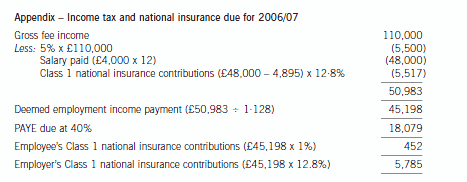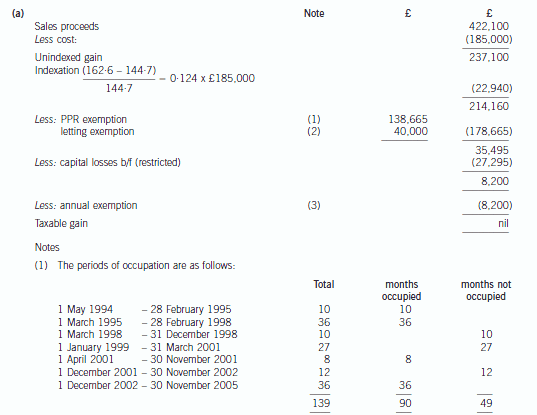在国际财经证书中,acca证书的地位如何?
发布时间:2021-05-02
如今越来越多的国际证书受到大家的青睐,acca证书也在其中。很多人会产生疑问,国际证书种类多种多样的,acca证书的地位怎么样?有没有必要考呢?接下来就给大家谈一谈acca证书在国际证书中的地位。
会计岗位作为社会上热门的工作岗位,吸引着越来越多的大学生,很多人在选择专业时会考虑会计相关专业。但是,选择会计类专业的人数越来越多,想要在这个行业内取得良好的发展,除了相应的工作经验之外,证书也越来越重要。
随着中国经济与世界不断接轨,除了国内大家熟知的初级会计职称、中级会计职称和注册会计师证书外,我国还慢慢引入了很多国际财会证书,越来越多的证书逐渐被国内的企业接受。其中受到广泛认可的有:CFA(特许金融分析师)、CMA(注册管理会计师)、acca(特许公认会计师,在国内也被称为国际注册会计师)。在这里主要和大家解释一下,被称为国际注册会计师的acca。
在许多国际财经证书中,acca拥有着不可撼动地位。特许公认会计师公会,在1904年成立于英国伦敦,是全球最具影响力的专业会计师组织。随着国内越来越多的企业踏上国际化的浪潮,不断了解国际会计准则变成了这个行业里与时俱进的新要求,特别是国内的一线城市或准一线城市,想要进入知名企业或者外企,acca几乎变成了入行标配,所以acca证书在国内的就业市场上所发挥的作用越来越重要,被称为全球就业“绿卡”。
acca是目前发展速度最快,海外学员最多的专业会计师组织。在国内也有许多知名院校开始和英国acca合资办学考试培训中心,可以参加考试的省份也越来越多,其中考试试卷由英国本土统一阅卷,以确保考试的正规性以及持证人士的专业素养。ACCA证书以科目众多、全英文考试、含金量高等特点保持着很重要的地位。
如果大家想要在会计行业越站越稳,除了不断累积行业经验外,更需要不断取得相应的会计资格证书去帮助自己攀上一个又一个人生高点,而在国际化日益普及的当今社会,获取一张国际财经证书也是非常有必要性的,考acca就是一个很不错的选择。
下面小编为大家准备了 ACCA考试 的相关考题,供大家学习参考。
6 Charles and Jane Miro, aged 31 and 34 years respectively, have been married for ten years and have two children
aged six and eight years. Charles is a teacher but for the last five years he has stayed at home to look after their
children. Jane works as a translator for Speak Write Ltd.
Speak Write Ltd was formed and began trading on 6 April 2006. It provides translation services to universities. Jane,
who ceased employment with Barnham University to found the company, owns 100% of its ordinary share capital
and is its only employee.
Speak Write Ltd has translated documents for four different universities since it began trading. Its biggest client is
Barnham University which represents 70% of the company’s gross income. It is estimated that the company’s gross
fee income for its first 12 months of trading will be £110,000. Speak Write Ltd usually agrees fixed fees in advance
with its clients although it charges for some projects by reference to the number of days taken to do the work. None
of the universities makes any payment to Speak Write Ltd in respect of Jane being on holiday or sick.
All of the universities insist that Jane does the work herself. Jane carries out the work for three of the universities in
her office at home using a computer and specialised software owned by Speak Write Ltd. The work she does for
Barnham University is done in the university’s library on one of its computers as the documents concerned are too
delicate to move.
The first set of accounts for Speak Write Ltd will be drawn up for the year ending 5 April 2007. It is estimated that
the company’s tax adjusted trading profit for this period will be £52,500. This figure is after deducting Jane’s salary
of £4,000 per month and the related national insurance contributions but before any adjustments required by the
application of the personal service companies (IR 35) legislation. The company has no other sources of income or
capital gains.
Jane has not entered into any communication with HM Revenue and Customs (HMRC) with respect to the company
and wants to know:
– When the corporation tax computation should be submitted and when the tax is due.
– When the corporation tax computation can be regarded as having been agreed by HMRC.
Charles and Jane have requested a meeting to discuss the family’s finances. In particular, they wish to consider the
shortfall in the family’s annual income and any other related issues if Jane were to die. Their mortgage is covered
by a term assurance policy but neither of them have made any pension contributions or carried out any other long
term financial planning.
Jane has estimated that her annual after tax income from Speak Write Ltd, on the assumption that she extracts all of
the company’s profits, will be £58,000. Charles owns two investment properties that together generate after tax
income of £8,500. He estimates that he could earn £28,000 after tax if he were to return to work.
The couple’s annual surplus income, after payment of all household expenditure including mortgage payments of
£900 per month, is £21,000. Charles and Jane have no other sources of income.
Required:
(a) Write a letter to Jane setting out:
(i) the arguments that HMRC could put forward, based only on the facts set out above, in support of
applying the IR 35 legislation to Speak Write Ltd; and
(ii) the additional income tax and national insurance contributions that would be payable, together with
their due date of payment, if HMRC applied the IR 35 legislation to all of the company’s income in
2006/07. (11 marks)


1 Stuart is a self-employed business consultant aged 58. He is married to Rebecca, aged 55. They have one child,
Sam, who is aged 24 and single.
In November 2005 Stuart sold a house in Plymouth for £422,100. Stuart had inherited the house on the death of
his mother on 1 May 1994 when it had a probate value of £185,000. The subsequent pattern of occupation was as
follows:
1 May 1994 to 28 February 1995 occupied by Stuart and Rebecca as main residence
1 March 1995 to 31 December 1998 unoccupied
1 January 1999 to 31 March 2001 let out (unfurnished)
1 April 2001 to 30 November 2001 occupied by Stuart and Rebecca
1 December 2001 to 30 November 2005 used occasionally as second home
Both Stuart and Rebecca had lived in London from March 1995 onwards. On 1 March 2001 Stuart and Rebecca
bought a house in London in their joint names. On 1 January 2002 they elected for their London house to be their
principal private residence with effect from that date, up until that point the Plymouth property had been their principal
private residence.
No other capital disposals were made by Stuart in the tax year 2005/06. He has £29,500 of capital losses brought
forward from previous years.
Stuart intends to invest the gross sale proceeds from the sale of the Plymouth house, and is considering two
investment options, both of which he believes will provide equal risk and returns. These are as follows:
(1) acquiring shares in Omikron plc; or
(2) acquiring further shares in Omega plc.
Notes:
1. Omikron plc is a listed UK trading company, with 50,250,000 shares in issue. Its shares currently trade at 42p
per share.
2. Stuart and Rebecca helped start up the company, which was then Omega Ltd. The company was formed on
1 June 1990, when they each bought 24,000 shares for £1 per share. The company became listed on 1 May
1997. On this date their holding was subdivided, with each of them receiving 100 shares in Omega plc for each
share held in Omega Ltd. The issued share capital of Omega plc is currently 10,000,000 shares. The share price
is quoted at 208p – 216p with marked bargains at 207p, 211p, and 215p.
Stuart and Rebecca’s assets (following the sale of the Plymouth house but before any investment of the proceeds) are
as follows:
Assets Stuart Rebecca
£ £
Family house in London 450,000 450,000
Cash from property sale 422,100 –
Cash deposits 165,000 165,000
Portfolio of quoted investments – 250,000
Shares in Omega plc see above see above
Life insurance policy note 1 note 1
Note:
1. The life insurance policy will pay out a sum of £200,000 on the death of the first spouse to die.
Stuart has recently been diagnosed with a serious illness. He is expected to live for another two or three years only.
He is concerned about the possible inheritance tax that will arise on his death. Both he and Rebecca have wills whose
terms transfer all assets to the surviving spouse. Rebecca is in good health.
Neither Stuart nor Rebecca has made any previous chargeable lifetime transfers for the purposes of inheritance tax.
Required:
(a) Calculate the taxable capital gain on the sale of the Plymouth house in November 2005 (9 marks)

Note that the last 36 months count as deemed occupation, as the house was Stuart’s principal private residence (PPR)
at some point during his period of ownership.
The first 36 months of the period from 1 March 1995 to 31 March 2001 qualifies as a deemed occupation period as
Stuart and Rebecca returned to occupy the property on 1 April 2001. The remainder of the period will be treated as a
period of absence, although letting relief is available for part of the period (see below).
The exempt element of the gain is the proportion during which the property was occupied, real or deemed. This is
£138,665 (90/139 x £214,160).
(2) The chargeable gain is restricted for the period that the property was let out. This is restricted to the lowest of the
following:
(i) the gain attributable to the letting period (27/139 x 214,160) = £41,599
(ii) £40,000
(iii) the total exempt PPR gain = £138,665
i.e. £40,000.
(3) The taper relief is effectively wasted, having restricted losses b/f to preserve the annual exemption.
10 Which of the following factors would cause a company’s gearing ratio to fall?
1 A bonus issue of ordinary shares.
2 A rights issue of ordinary shares.
3 An issue of loan notes.
4 An upward revaluation of non-current assets.
A 1 and 3
B 2 and 3
C 1 and 4
D 2 and 4
(ii) Explain the organisational factors that determine the need for internal audit in public listed companies.
(5 marks)
(ii) Factors affecting the need for internal audit and controls
(Based partly on Turnbull guidance)
The nature of operations within the organisation arising from its sector, strategic positioning and main activities.
The scale and size of operations including factors such as the number of employees. It is generally assumed that larger
and more complex organisations have a greater need for internal controls and audit than smaller ones owing to the
number of activities occurring that give rise to potential problems.
Cost/benefit considerations. Management must weigh the benefits of instituting internal control and audit systems
against the costs of doing so. This is likely to be an issue for medium-sized companies or companies experiencing
growth.
Internal or external changes affecting activities, structures or risks. Changes arising from new products or internal
activities can change the need for internal audit and so can external changes such as PESTEL factors.
Problems with existing systems, products and/or procedures including any increase in unexplained events. Repeated or
persistent problems can signify the need for internal control and audit.
The need to comply with external requirements from relevant stock market regulations or laws. This appears to be a
relevant factor at Gluck & Goodman.
声明:本文内容由互联网用户自发贡献自行上传,本网站不拥有所有权,未作人工编辑处理,也不承担相关法律责任。如果您发现有涉嫌版权的内容,欢迎发送邮件至:contact@51tk.com 进行举报,并提供相关证据,工作人员会在5个工作日内联系你,一经查实,本站将立刻删除涉嫌侵权内容。
- 2020-01-10
- 2020-03-14
- 2020-03-05
- 2020-01-10
- 2019-12-31
- 2020-01-09
- 2020-01-09
- 2020-03-29
- 2020-03-08
- 2020-01-10
- 2020-03-12
- 2020-01-10
- 2020-04-02
- 2020-01-08
- 2020-01-10
- 2020-03-05
- 2020-01-10
- 2020-01-10
- 2020-03-19
- 2020-01-09
- 2020-01-08
- 2021-09-12
- 2020-01-09
- 2020-03-11
- 2020-03-04
- 2021-06-27
- 2020-01-09
- 2020-03-27
- 2020-04-16
- 2020-01-09